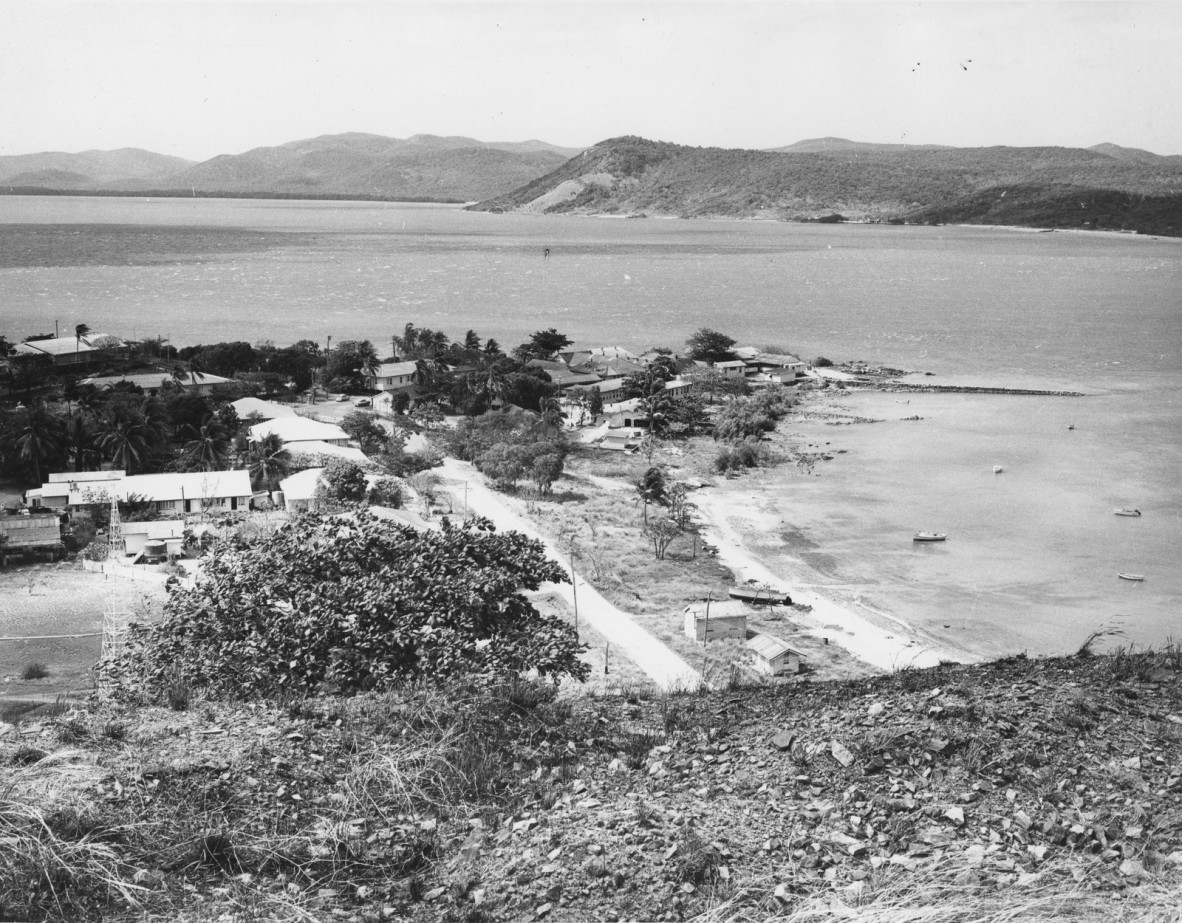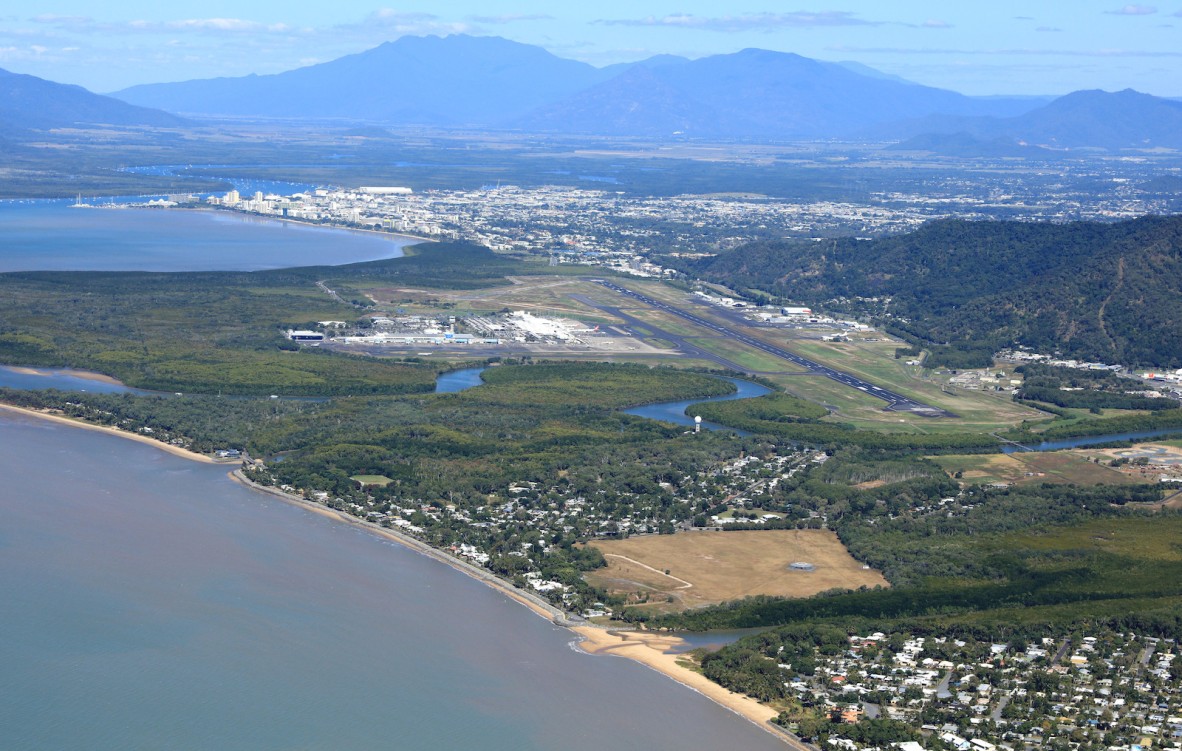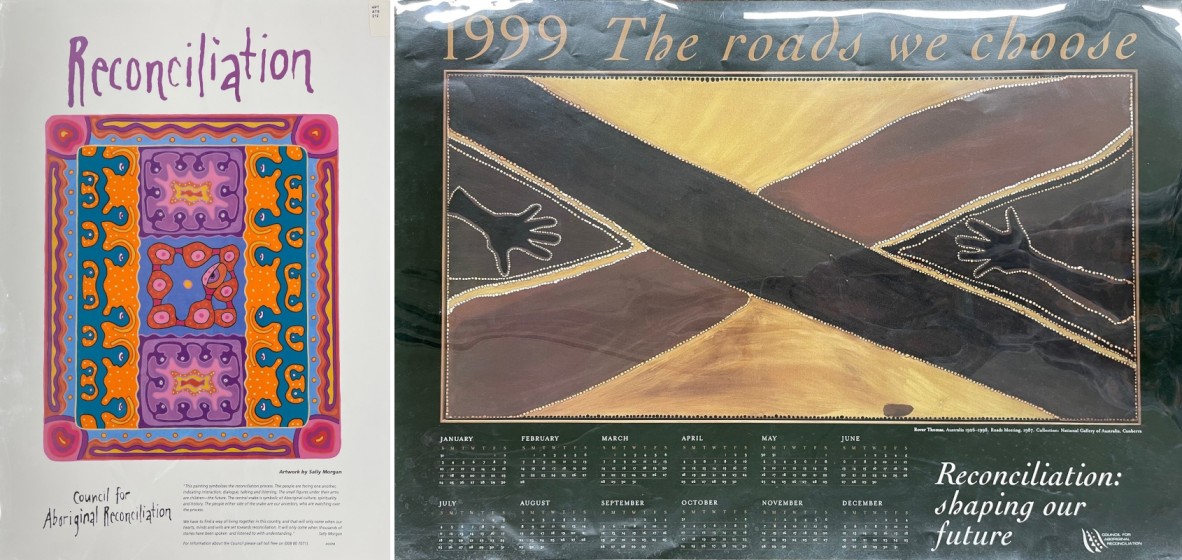
View overlooking Thursday Island Hospital, 1970. Photographer unknown. Negative no: 204899. John Oxley Library, State Library of Queensland.
Uncle Bill Lowah, born 2 months premature at Thursday Island Hospital, was christened Samuel William Belza Lowah. At 2 years of age his family moved to Machans Beach, near Cairns, where Uncle Bill enjoyed a free-range childhood with his older brothers and many cousins, getting up to mischief in the mangroves, creeks, and beaches of the area. He always had chores to do, but by his own admission, was much more interested in play and adventure than work or school.

Aerial view of Machans Beach, 2019. Photograph by Daryl Jones. Image no. 32408-0001-0022. John Oxley Library, State Library of Queensland.
His beloved mother passed away when he was 12 years old. With his father and older brothers frequently away for work – like many Aboriginal and Torres Strait Islander men, they worked on building railways and roads, harvesting cane, and in mining – his Dad negotiated with a young Anglican priest to become Bill's guardian so he could stay in Cairns to undertake secondary schooling.

Re-laying the Cloncurry railyards, 1962. Photographer unknown. Negative no. 172185. John Oxley Library, State Library of Queensland.
Appointed to the Council for Aboriginal Reconciliation from its inception in 1991, the result of a recommendation of the Royal Commission into Aboriginal Deaths in Custody, Uncle Bill has advised governments and served in many community and social justice organisations, all with the same aim - he is driven to work to improve health, housing and education opportunities for First Nations people. He has seen First Nations activism develop and grow, from a time when no-one was allowed to protest, even peacefully, during the Bjelke-Petersen years to now, when Indigenous and non-Indigenous walk together to demand change. Uncle Bill has also travelled the breadth and depth of Australia, passionate about speaking to First Nations people about their rights and keeping culture strong.

Council for Aboriginal Reconciliation posters featuring artwork by Sally Morgan (left) and Rover Thomas (right), c.1990s (left) and 1999 (right). Call numbers: HPT ATS 212 (left) and RBHPT NIN 471. John Oxley Library, State Library of Queensland.
Although deeply embedded in his wider family and community – Uncle Bill is fluent in 2 Torres Strait dialects as well as English – he still counts some of his non-Indigenous childhood playmates amongst his best friends. His deep belief that we are all simply human has driven him to live a life embodying the values of reconciliation, a cause he has worked ceaselessly for.
Uncle Bill has a deep love of language and is a poet of some renown. He is also a jazz musician, continuing the strong musical traditions that ran in his family. Now a proud grandfather, family remains an important touchstone in Uncle Bill's life, while he continues with his advocacy and social justice work.
State Library of Queensland recorded an oral history with Uncle Bill early in 2023 as part of the Library's First Nations Elders oral history project. This video is included in our rotating collection exhibition in the Philip Bacon Heritage Gallery on level 4, Extraordinary stories.
You can find the Uncle Bill Lowah oral history here and the shorter form digital story here.
Comments
Your email address will not be published.
We welcome relevant, respectful comments.